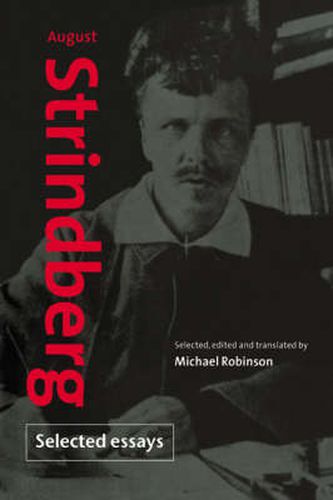Readings Newsletter
Become a Readings Member to make your shopping experience even easier.
Sign in or sign up for free!
You’re not far away from qualifying for FREE standard shipping within Australia
You’ve qualified for FREE standard shipping within Australia
The cart is loading…






This is a fully edited translation of a series of essays by the great Swedish dramatist August Strindberg. The essays, edited and translated by Michael Robinson, have been selected for the light they shed, both directly and indirectly, on Strindberg’s contribution to the European theatre, firstly in such masterpieces of psychological realism as The Father and Miss Julie, and subsequently in those works, including A Dream Play and The Ghost Sonata, with which he largely established a basis for theatrical modernism. Together with the accompanying notes and commentary, these essays on psychology, history, painting, natural history and alchemy as well as the theatre, help to clarify the multifaceted nature of Strindberg’s project. Idiosyncratic and lively, they offer crucial insights into the intellectual history of the late nineteenth century, while their personal nature draws the reader into an intimate relationship with the writer and his wide range of interests.
$9.00 standard shipping within Australia
FREE standard shipping within Australia for orders over $100.00
Express & International shipping calculated at checkout
This is a fully edited translation of a series of essays by the great Swedish dramatist August Strindberg. The essays, edited and translated by Michael Robinson, have been selected for the light they shed, both directly and indirectly, on Strindberg’s contribution to the European theatre, firstly in such masterpieces of psychological realism as The Father and Miss Julie, and subsequently in those works, including A Dream Play and The Ghost Sonata, with which he largely established a basis for theatrical modernism. Together with the accompanying notes and commentary, these essays on psychology, history, painting, natural history and alchemy as well as the theatre, help to clarify the multifaceted nature of Strindberg’s project. Idiosyncratic and lively, they offer crucial insights into the intellectual history of the late nineteenth century, while their personal nature draws the reader into an intimate relationship with the writer and his wide range of interests.